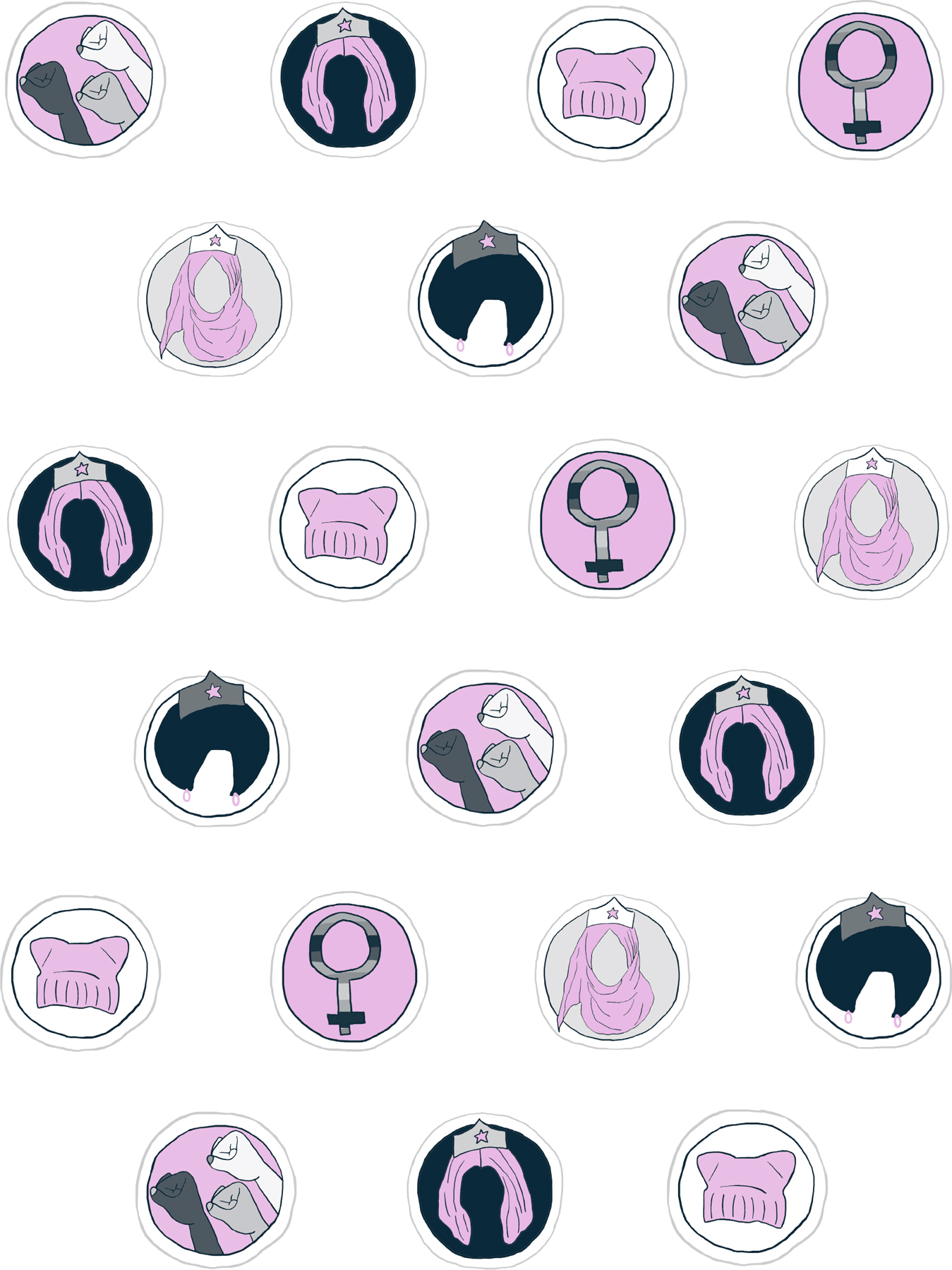A.K.A. HOW TO AVOID LOSING YOUR MIND WHILE YOU’RE CHANGING THE WORLD

Caring for myself is not self-indulgence, it is self-preservation, and that is an act of political warfare,” wrote poet, author, and activist Audre Lorde in her 1988 book, A Burst of Light.1
In the wake of the 2016 presidential election—a moment in which both self-preservation and political warfare felt paramount—the idea of self-care entered the public consciousness more intensely. Google searches for the term spiked during mid-November, as scared and anxious Americans attempted to soothe themselves.2 And—as is wont to happen with terms coined and used by activists and marginalized groups—once self-care became buzzy, it also became somewhat watered down.
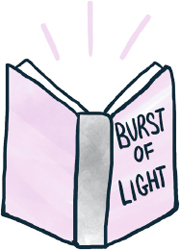
A simple Google search turns up lists with headlines such as “19 Items to Buy for Your Mental Health, Because Self-Care Isn’t Always Free” and “9 Products That Won’t Let You Forget About Self-Care This Year,” encouraging readers to purchase a $30 self-care journal or a $65 Jo Malone candle. Don’t get me wrong, I love bourgie candles as much as the next girl, and I don’t fault anyone for enjoying these products—products can be super fun, and retail therapy feels damn good!—but I’m going to go out on a limb and assume that Audre Lorde was not thinking about going on a high-end bath-product shopping spree when she wrote about self-preservation as political warfare.
* * *
In 2012, Lucy McBath’s seventeen-year-old son, Jordan Davis, was fatally shot by a man who objected to the loud music he and his friends were playing at a Jacksonville, Florida, gas station. The tragedy rocked Lucy’s world and plunged her into an identity crisis. She had been Jordan’s mother for nearly twenty years. Who was she now?
Lucy found herself leaning into her Christian faith for solace and talking to God.
“Now that I’m no longer his mother, what do you want me to do with my life?” she asked.
Her answer came in the form of a calling. She sensed that what had happened to Jordan would continue to happen to other young men of color, and that staying silent was no longer an option. She’d never considered herself an activist. Hell, she’d never even been a public speaker. But she had a voice, and she was going to use it.
“I felt like all I needed to do was open my mouth and [see who] would listen to me,” she told me. “I felt like God had given me a mandate, and I was going to have to speak out. I felt like even though Jordan is no longer here, physically, I’m still his mother and I still need to parent him and protect him. A part of that was challenging the stand-your-ground laws. I’m going to challenge these laws, and I don’t care what it takes. Whoever would be willing to listen to me, whoever would open their doors for me, I was going to [speak to].”
And that is just what she did. And has kept doing.
She began speaking up about gun violence, police brutality, and racism. She told her story and people listened. She launched a national campaign against stand-your-ground laws—which her son’s killer used as a defense (he was convicted of first-degree murder in 2014 thanks to Lucy’s work). She became the faith and outreach leader for Everytown for Gun Safety and a national spokesperson for Moms Demand Action for Gun Sense in America. She gave a moving address at the 2016 Democratic National Convention, standing shoulder-to-shoulder with other Mothers of the Movement, other mothers who had lost their black children—Trayvon Martin, Eric Garner, Sandra Bland, Mike Brown, Hadiya Pendleton, Dontré Hamilton—at the hands of gun violence and police brutality.3
“We’re going to keep telling our children’s stories and urging you to say their names,” she said at the DNC, to those present and the many more watching on television. “We’re going to keep building a future where police officers and communities of color work together in mutual respect to keep children, like Jordan, safe. [. . .] And we’re also going to keep using our voices and our votes to support leaders, like Hillary Clinton, who will help us protect one another so this club of heartbroken mothers stops growing.”
Lucy, if you can’t already tell, is an extraordinary woman. She exudes warmth and compassion in a way I have rarely experienced. When we met up for lunch at a restaurant in midtown Manhattan, she greeted me with a full-hearted hug, even though we had only met in person once before. If you sit and talk with Lucy, within ten minutes you feel close to her, and sense that she would fight for your humanity if you were ever in need of her voice.
This unwavering dedication to other human beings also means that sometimes she can forget to take care of herself.
Lucy describes the years immediately after Jordan’s death as like being on a train that she couldn’t get off. It wasn’t until after the 2016 election that she realized she was completely burned out.
“I had planned to take a three-month hiatus, which I did. I was gone after the election and didn’t come back, formally, until March,” she told me. “It was the best thing I ever did because I really had a chance to figure out and create different ways to do this advocacy. When you’re so mired in the work from day to day, I think you have the tendency to lose a lot of the creativity. [Stepping back for a bit] really gave me a chance to sit at home and rest and think about, what does this advocacy look like for me going forward?”
This story of burnout is a common one for activists. After all, the work of creating social change can be emotionally, mentally, and physically grueling. So what’s one way to maintain a sense of sanity in the face of daily insanity? Self-care.
For the women I spoke to for this book, who come from various spheres, backgrounds, and geographical locations, self-care is less about relaxation products and more about the intangibles—the space that allows you to take a step back, recharge your soul, and say yes to yourself so that you can continue saying yes to others in effective and creative ways.
I asked extraordinary women how they practiced self-care. Here’s what they said.
DEJA FOXX, High School Student and Reproductive Justice Advocate
“To me, self-care means respecting yourself and your efforts. I practice self-care in my busy schedule of activism, academics, and work by doing yoga and spending time with my friends and boyfriend.”
LUCY MCBATH, Mother of the Movement, Spokesperson for Moms Demand Action for Gun Sense in America, and Faith Outreach Leader for Everytown for Gun Safety
“Weekends, holidays shut down. [At] 6 P.M. phones go off. You have to recognize that you’re important. You’re important to the movement. It’s a matter of preserving your relationships—relationships that you had to people before you became a part of the movement. You’ve got to nurture them. I did a lot of reading of things outside of gun violence prevention. Just reading stories and reading books and biographies that were not related to the struggle. Going to movies, date night with my husband. It’s important to understand and to recognize that you’re just a human being, and that this struggle is going to always be here, and it’s going to be a long one, and we cannot solve it overnight.”
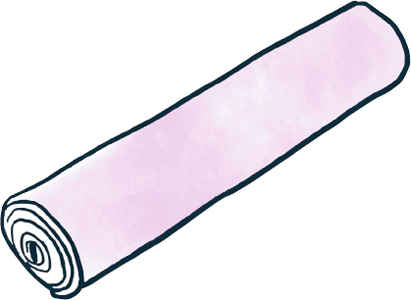
WENDY DAVIS, Former State Senator and Founder of Deeds Not Words
“Family and friends. And I have developed a skill over time that has really served me, which is to compartmentalize, to try to shut down and completely separate myself sometimes from the work, the policies that we care about, and to focus on something right in front of me, whether it’s cooking a meal or going on a run or spending time with my baby granddaughter—just really focusing myself in that moment and enjoying and filling myself up by virtue of things that I enjoy. That really leaves your tank a lot fuller for the hard fights to come.”
FLAVIA DZODAN, Writer
“If you look at my social media interactions, you will see that there are gaps. There are entire hours, I mean not just when I’m sleeping. Disengaging is the key to self-care for me. I can work on other stuff, but without [the] pressure of having to constantly be available. For me, self-care is not paying attention for a number of hours a day.”
HALEY STEVENS, Congressional Candidate
“I have a mantra that’s called ‘pencils down.’ Knowing when to go pencils down, just like when you’re at the end of a test. ‘This is as much time as I have right now for this. Pencils down.’ The best thing is that when I put that pencil down, I can pick it right back up, and I can get back to work. That’s not going to go anywhere. I live in a beautiful part of southeastern Michigan where there are some trails, so running and walking; finding that time in the early morning to go for a run or get some exercise in is really helpful. Some of the best advice I got at the beginning of this [campaign] was pencil it in and out. Pencil in. Carve out the time now that you’re going to be spending for you.”
WINNIE WONG, Founder of People for Bernie
“I think the honest answer is that I don’t [practice self-care], but that does not mean I don’t think about it. I practice self-care through constantly unpacking my courage. That to me is a form of self-care. It’s about understanding and being grateful for my great health, my beautiful apartment, my hot boyfriend, and my pit bull. My hot boyfriend does my laundry for me. This is self-care for me, the fact that he is completely supportive in my work when I’m not available to ever make him macaroni and cheese anymore. This is all self-care to me. Just practicing gratitude for one’s privilege is a form of practicing self-care.”
CARMEN PEREZ, Women’s March National Cochair
“I wake up every morning and I intentionally am grateful for three things. I practice spirituality. I also work out and I try to eat healthy. So I really try to take care of my body, my mind, and my spirit. We’re humans, right? So whenever we get death threats or we get people trolling us, of course you’re going to have an emotional outburst. But I also know that I have a great, great, great support system. I have a very loving family. I try to model the types of relationships that I ask young people to have. And I also make sure that I keep those people who don’t serve me at arm’s length.”
AMANDA GORMAN, Activist and Youth Poet Laureate of the United States
“I have an interesting self-care regimen, and it often revolves around Pixar movies. I really believe in the power of narratives, and so I hitch onto narratives that speak to me and I’ll reread in times of doubt. So whether that’s rewatching Moana or rereading Harry Potter, I make sure that I take some time to embark on those narratives that help demonstrate what I care about. I meditate, I write, I play with my dog, and then above all I believe in what I call ‘Literary Talismans’—they’re basically mantras that I repeat to myself in times of anxiety or insecurity, and they remind me of where I’ve come from, of the people whose shoulders I’m standing on, and what my values are. And so I kind of speak to myself a mantra about being the descendant of slaves, being the descendant of these black freedom fighters, and how I want to further continue this path of deliverance. And I repeat that to myself, and then I feel way more energized about the work that needs to get done. And I always try to get six hugs a day, at least. Hugs are perfect; once you give a hug you cannot stop.”
JANAYE INGRAM, National Organizer and Head of Logistics for Women’s March
“For me, self-care is travel. I love to travel. When I feel like life is too much or circumstances, issues, whatever it is, is too much for me, my outlet is through travel. I’m also really closely connected with my family. I see them very often. Those are the two things that for me I really do to practice self-care. It’s about allowing myself to really unplug and not necessarily focus on what’s happening on the news or what’s happening out in the streets.”
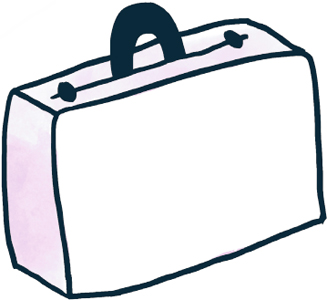
ELIZABETH WARREN, United States Senator
“Especially in this time of nonstop email, Facebook and Twitter, and round-the-clock news, it can be tough to step back and take a deep breath. But I think it’s really important to carve out time for yourself, to recharge and reset. This is going to be a marathon, not a sprint. I’m working on it—and I’m not there yet. I exercise, and I listen to audiobooks. I try not to check email late at night (Trump’s 3 A.M. tweets will still be there tomorrow morning). I’m lucky to have a sweetie I’m crazy about, and grandkids and nieces and nephews who remind me why I’m in this fight.”
SHANNON WATTS, Founder of Moms Demand Action for Gun Sense in America
“I do a lot of meditation. I do a lot of yoga and working out. I’m married to an amazing, supportive husband. Honestly, my kids are older, that has helped me quite a bit because to have little kids and to be doing this work would be harder. It doesn’t mean it’s insurmountable. My youngest was twelve when I started Moms [Demand Action] and is almost seventeen now. I think it’s really important to recharge and go on vacation. I just climbed Mount Kilimanjaro, and I had zero choice to be completely inaccessible and it was great. The world did not end.”
GABRIELLE GORMAN, Filmmaker and YoungArts Winner
“I like to watch a lot of movies from my childhood. I feel like I’ve been doing that a lot more recently since the election. I’ll watch stuff like The Grants and National Treasure and Scooby-Doo. Just sort of simple movies. I think that helps a lot. I try to tell people to find your thing, find something really simple that you can watch. I love this one show, Psych, because there’s not a lot of drama and it’s comedic. I don’t know if that’s just because I’m a filmmaker that that’s the way that I deal with it. I try to have a good balance. If I spend a lot of hours researching one thing that happened and I find myself really going into a hole, then I usually will come up with a battle plan for what I want to do to help that issue, whether it’s a meeting, whether it’s writing about it or putting it on my list of films to make. Then I will take a break and watch an episode of just some ditsy show.”
KAYLA BRIËT, Filmmaker, Composer, and Musician
“I think the hardest thing [about] self-care is [harnessing] the power to say no; to know when it’s more important to kind of back down, or pass an opportunity to someone else, or ask for help. Saying no doesn’t make you a weak person. It’s really important to take that time to gather energy just by being by yourself and to take time to have fun, and to take time to reward yourself for hard work.”
SARAH MCBRIDE, National Press Secretary for the Human Rights Campaign and LGBTQ Activist
“I think that’s something that all of us struggle with. There was a point in my life where I realized, when I was caring for Andy [Sarah’s husband who passed away from cancer in 2014], that the only way I could care for him is if I took care of myself, and if I dealt with emotions that I was feeling. I think there was this instinct, particularly as someone who is always so hyperaware of my own privilege, that when Andy was dying of cancer to be like, ‘Stop feeling sorry for yourself. You’re not dying.’ And while that’s true and while that’s a helpful perspective and while my plight in no way was comparable to Andy’s, I still needed to be able to grapple with my own feelings of negativity and fear and sadness. I still had to sleep and have moments of joy and levity. That experience underscored for me the cliché when it comes to self-care—that you can’t help other people if you’re not helping and taking care of yourself.
For me, honestly, that includes watching a lot of reality television. That is sort of an escape that allows me to—I don’t want to say turn my mind off, ’cause there’s a lot to unpack in those shows—but allows me to sort of escape in some ways. I have very strong feelings about this, because it’s another instance of this punishment of women who engage in levels of self-care through popular culture. Men, when they engage in self-care through consuming popular culture that disproportionately appeals to men, society doesn’t blink an eye. But when women engage in, or when any person engages in self-care that deals with popular culture that disproportionately appeals to women, whether it’s music or whether it’s television, what have you, it’s dismissed as superficial, as vapid, as even dangerous to culture. I think people need to set that bullshit aside and allow people to enjoy the shit that they enjoy.”
AI-JEN POO, Director of the National Domestic Workers Alliance and Codirector of Caring Across Generations
“I believe in having a practice, something that helps you connect to the essence of who you are and why you do what you do. For me that’s yoga and my yoga practice every morning, for some people it’s running, some people it’s art, other people it’s music—whatever it is that helps remind you of who you are and what you stand for. I believe in vacation. Workers fought for weekends and vacation time for a reason, and I believe in taking those and doing it with people that you love because I think that’s a big part of how we nourish ourselves for the long haul.”
JACKIE CRUZ, Actress and Activist
“I am one of those people who doesn’t stop working. But you gotta take care of yourself, or else you can’t make a difference. You have to be kind to yourself. I definitely try to eat healthy, [and] I treat my body with respect. And I love to express gratitude. When you don’t get an audition or when your world is falling apart, when [Trump] is your new president, I definitely write down everything that I’m grateful for.”
MARLO THOMAS, Award-Winning Actress, Author, and Activist
“As an activist, [I find it] important to practice self-care so that you don’t burn out. You always want to be rested and ready to step up to the next challenge. And you can’t do that without an ample reservoir of energy, passion, good health, goodwill, and good humor. Everyone practices self-care in their own ways. Some meditate, some jog, some get a massage, some take a purposeless walk just to enjoy the smell of the flowers and the company of passersby. I personally like to exercise, run in the park, lift weights. It gets me out of my ‘busy brain’ and works off stress as well as pounds. I also love to go to comedy clubs, because laughter always seems to reenergize me. But the bottom line is: it’s about taking the kind of care of yourself as you do everyone else in your life. Women are natural caretakers, but the one person we seem not to have time to care for is ourselves. This idea of self-care gives a name to that carelessness. It’s important that we feel good, both physically and emotionally—which includes making sure we eat well, get a decent amount of sleep, and don’t forget to cuddle up with someone we love. That feels good too.”
TINA TCHEN, Former Chief of Staff to First Lady Michelle Obama and Executive Director of the Obama White House Council on Women and Girls
“We live in a time where we are constantly entrenched in messages and media—read this, watch this, share this. Sometimes it’s good to turn everything off and to reflect. I think especially in the space of public service, where you’re dealing with a multitude of issues and where you’re concerned with the well-being of far more than just yourself, it’s important to take time to personally react and respond to how certain issues make you feel. In recent months self-care to me has been traveling, catching up with friends and family who I haven’t seen as much over the years, and spending time with my children—oh, and binge watching all the shows I haven’t had a chance to watch!”
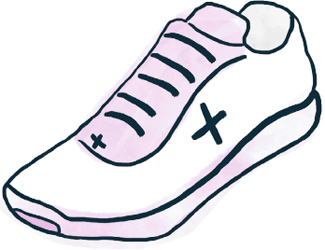
BOB BLAND, Women’s March National Cochair
“Honestly, we never really stopped [to take a break] after the march. Because right after was the Muslim ban. And that was just the beginning. The way that I’ve practiced self-care is that we’re very intentional about spending time with our families, and not allowing the most important connections in our lives to suffer. Because what’s the point of doing this work if your family comes out of it feeling like they lost you? I try to celebrate even small victories where we can connect with each other as a community. [The Women’s March organizers] may not have known each other when we started, but now we’re this very close-knit family of organizers who have been through a once-in-a-lifetime experience together. Organizing the Women’s March was like gaining an entire new family.”
RAQUEL WILLIS, Organizer and Writer
“For me, self-care isn’t something that is so organized or well thought out. I think that when we start to be too structured around self-care, that can actually become work and become less restorative than we would hope, so currently self-care to me is building personal relationships that don’t hinge on what’s going on in the movement. There’s the need for spaces where you can just breathe and people you can just worry about mundane things with, and not have to worry about saving the world, because none of us are superheroes; none of us can run on being invincible. So we need to have those outlets of just normality to branch out into. Also, for me self-care is relaxing. Self-care is watching ridiculous shows on Netflix or Hulu, or it’s lighting candles. It’s massages, it’s lying out in the sun, being out in fresh air. It’s reading and writing that doesn’t necessarily have anything to do with this capitalist system that we’re a part of.”
WAZINA ZONDON, Cocreator of Coming Out Muslim: Radical Acts of Love
“Some days, [it’s] saying no. And actually accepting affirmation and acknowledgment and being proud. Maybe once a year—for me I do it during Ramadan and I do it during birthday times—is looking at the last year and making a list of things I’m so proud of and also thanking the people in my life who help me get there. [. . .] Self-care [is also] watching The Office on repeat. I don’t watch hard TV. I don’t even engage haters anymore. Self-care is no longer reading comments.”
JAMIA WILSON, Executive Director and Publisher of the Feminist Press at City University of New York
“For me, it’s really about not suffering in silence, connecting with other people in solidarity. Another thing is, as I’ve gotten older and [been] managing auto-immune illnesses that I have, I feel like my body has created a status for itself that lets me know when I’m working too hard and pushes me to stop. So I really take the time to sleep. I [also] delegate and share opportunities with other people. When I get opportunities to recommend other people to participate in something who might not have that access, to me that is very much a sense of self-care because it makes me feel good to help support other people, but also it helps me feel like I don’t have to carry so much. The last thing I would say is I am now near nature—or as near to nature as you can get in New York City—and I take a walk in the park every day. And I just look at ducks and sometimes I just sit by the water, and it’s really great. I have this practice that I learned from an indigenous grandmother who I met at a spiritual workshop. And she taught me a ritual of releasing pain into trees by hugging them, and kind of asking the trees permission to unleash what you’re carrying into them. So I actually hug trees. It’s always funny to tell the conservatives in my life about that. I actually am a tree hugger.”
ASHLEY JUDD, Actor, Author, and Activist
“I practice self-care by prioritizing it. I can’t transmit that which I do not have. And I love the saying that self-care isn’t selfish, it is self-esteem. The patriarchy wants to diminish me in every way, and that includes through sheer exhaustion. Getting enough sleep, which for me is ten and a half hours per night, is really important. Exercise is very important for my brain, as well as for my sense of being physically capable. I am veganish, which is for my health as well as a deeply moral and ethical choice for me. I think reading Audre Lorde about self-care is important to understand why the body is a site of political and social resistance and transformation. I use my voice, write, and find the courage to live my truth in often unfriendly public spaces, which can be made safe by strong female-to-female alliances—which when it comes to self-care are perhaps the coup de grace. Having fun and laughing regularly are a part of self-care . . . . As much as I need community, I also need long stretches of solitude and silence. Being in nature is critical for me—it is both emergency room and church for my spirit. I love to hike and backpack, and especially enjoy solo back-country backpacking in the Appalachian Mountains.”
ALICIA GARZA, Cofounder of Black Lives Matter Network and Special Projects Director at the National Domestic Workers Alliance
“For me, self-care is about cultivating my ability to be resilient in the face of oppression and domination. That means I try to be very intentional about cultivating communities that care for me and can hold me accountable to what it takes for me to move toward my vision. Manicures are nice, but that isn’t self-care for me. For me, self-care is the spaces that I help to create where I get to access my resilience. That could mean making time for a dance-off with friends, having a support circle, or spending time alone. But I hesitate to only call things that cost money self-care, when so much of what so many of us struggle with is having access to the resources we need to make ends meet.”
WHAT TO LISTEN TO WHEN YOU NEED AN INSPIRATION PICK-ME-UP
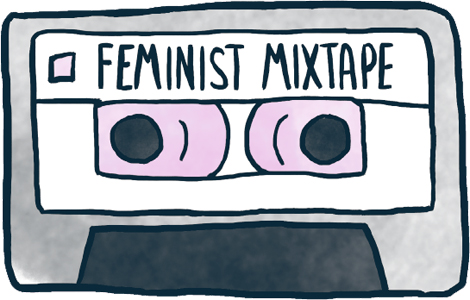
“Run the World (Girls)”
Beyoncé, 4 (2011)
“Salute”
Little Mix, Salute (2013)
“Fighter”
Christina Aguilera, Stripped (2002)
“The Greatest”
Sia, This Is Acting (2016)
“Cold War”
Janelle Monáe, The ArchAndroid (2010)
“Formation”
Beyoncé, Lemonade (2016)
“Heads Will Roll”
Yeah Yeah Yeahs, It’s Blitz! (2009)
“Shake It Out”
Florence and the Machine, Ceremonials (2011)
“Just a Girl”
No Doubt, Tragic Kingdom (1995)
“Nasty”
Janet Jackson, Control (1986)
“Desperado”
Rihanna, Anti (2016)
“Bulletproof”
La Roux, La Roux (2009)
“Work It”
Missy Elliott, Under Construction (2002)
“Dancing on My Own”
Robyn, Body Talk Pt. 1 (2010)
“No Scrubs”
TLC, FanMail (1999)
“Fuck You”
Lily Allen, It’s Not Me, It’s You (2009)
“Cut to the Feeling”
Carly Rae Jepsen, Leap! Soundtrack (2017)
“L.E.S. Artistes”
Santigold, Santogold (2008)
“Break Free”
Ariana Grande, My Everything (2014)
“Feeling Myself”
Nicki Minaj, The Pinkprint (2014)
“Bad Girls”
M.I.A., Matangi (2013)
“None of Your Business”
Salt-N-Pepa, Very Necessary (1993)
PS: Beyoncé gets two songs on this list, because she’s Beyoncé. She could have gotten a hundred.
PPS: Dancing it out to one of these anthems has been known to take the edge off everyday stresses, including (but not limited to) 75 percent of comments Piers Morgan makes; male politicians who tweet their “thoughts and prayers”; the word bigly; and the systematic chipping away at your reproductive rights.
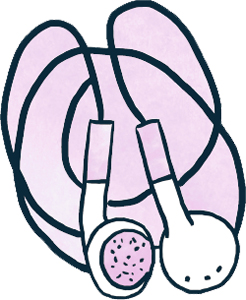
WHAT TO WATCH WHEN YOU NEED AN INSPIRATION PICK-ME-UP
Because sometimes you do actually need to sit on your couch—or in your bed, tucked under a mountain of cozy blankets—for a little while.
HIDDEN FIGURES
Learn about the black women who helped make NASA’s groundbreaking space program possible. Not only do you get to watch a movie about real-life mathematical superheroes Dorothy Vaughan, Mary Jackson, and Katherine Johnson, but also, every single one of Janelle Monáe’s outfits is the stuff vintage sartorial dreams are made of.
THE BLETCHLEY CIRCLE
My favorite genre of TV show is “badass lady detective, preferably with a British accent.” This BBC miniseries covers all of those bases. Plus, it’s based on the real-life women code breakers who staffed Britain’s Bletchley Park during World War II!
THE HANDMAID’S TALE
Okay, so this one isn’t exactly uplifting, but Hulu’s modern-day adaptation of Margaret Atwood’s dystopian tale—a world in which women’s rights have been slowly stripped away and fertile women are treated as human hosts for high-status infertile couples—feels just real enough to jolt you into action.
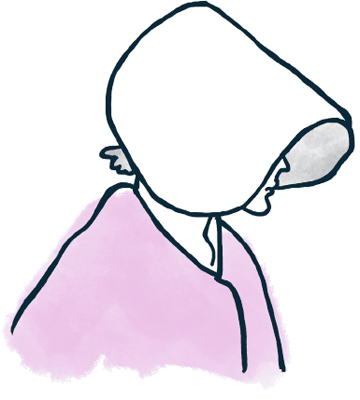
WHAT HAPPENED, MISS SIMONE?
A documentary about the legendary singer and civil rights advocate Nina Simone? That’s really all you need to know in order to say hell yes to this one.
PARKS AND RECREATION
Leslie Knope is a dedicated public servant who loves Joe Biden and Galentine’s Day. It’s hard to get more delightful than that.
ERIN BROCKOVICH
The true story of Erin Brockovich, a single mother who discovers that a gas and electric company has contaminated the water of an entire community in California. Erin, played by Julia Roberts, embarks on a mission to hold them legally accountable. The movie also has great one-liners, like “They’re called boobs, Ed.” (Which is apparently something the real Erin Brockovich actually said.)
HE NAMED ME MALALA
In 2012, Pakistani teen, writer, and humanitarian Malala Yousafzai was shot and nearly killed by a Taliban gunman in opposition to girls going to school. She survived and went on to become an advocate for girls’ educational opportunities and rights around the world. (She also became the youngest Nobel Prize laureate in history.) This 2015 documentary follows her young life and all that she has accomplished.
CONFIRMATION
Anita Hill changed the way we think of workplace sexual harassment in this country. HBO’s film adaptation of her story follows Clarence Thomas’s 1991 Supreme Court confirmation hearings, during which Hill testified that Thomas had sexually harassed her when she worked for him. She was subsequently dragged through the mud by the press and certain members of Congress. Thomas was eventually confirmed, but thanks to Hill, we gained a greater national understanding of what sexual harassment looks like in the workplace. In 1991 the Equal Employment Opportunity Commission (EEOC, where Hill had worked under Thomas) saw 3,349 charges filed alleging sexual harassment. One year later, 5,607 were reported. These hearings also ushered in the “Year of the Woman,” in which a record-breaking number of women were elected to the Senate and the House.
THELMA AND LOUISE
Geena Davis + Susan Sarandon + Brad Pitt + a disastrous, tragic, and exhilarating road trip that illustrates the deep bonds that form between women = a winner.

MAD MAX: FURY ROAD
Even though this movie is part of the Mad Max franchise, Charlize Theron as the badass, name-taking Imperator Furiosa really steals the show. In a postapocalyptic world, where women are largely reduced to sexual objects and baby-making vessels, Furiosa rebels against a tyrannical warlord in a quest to save the women said warlord has taken to his harem.
SET IT OFF
Jada Pinkett Smith, Queen Latifah, Vivica A. Fox, and Kimberly Elise walk into a bank . . . and rob it. This “socially conscious heist film” has been compared to Thelma and Louise for its incisive look at female solidarity (and structural oppression).
WORKING GIRL
I always have questions while watching Working Girl, like “Why does the Big Bad have to be another woman?” and “Why does finding happiness and fulfillment still involve finding a man?” But despite those things, Working Girl is pure bliss. Melanie Griffith slays eighties corporate sexism and gets the corner office she deserves. (Plus, the Carly Simon feature song is perfection!)
BUT I’M A CHEERLEADER
Natasha Lyonne plays a cheerleader whose parents suspect she’s a lesbian, so they haul her off to a conversion therapy camp called True Directions. Hijinks . . . and love . . . and self-acceptance . . . and empowerment ensue.
JESSICA JONES
This isn’t your average superhero show. We first meet Jessica Jones after her (failed and brief) superhero career. She’s become a detective with a rather hard edge in New York City. The show deftly deals with issues of sexual assault, domestic abuse, and PTSD, all through the lens of a heightened reality.
SCANDAL
Obviously anything Shonda Rhimes touches is pure gold, but the first few seasons of Scandal are particularly inspired. Political fixer Olivia Pope is a hypercompetent “gladiator,” even as she guzzles red wine and has an on-and-off affair with the (very dreamy) president of the United States. Scandal also exists in a glorious dream world where Republican elites care about Planned Parenthood and immigration reform.
BUFFY THE VAMPIRE SLAYER
Sarah Michelle Gellar’s Buffy Summers comes to slay . . . literally. The petite, blond high school student has the weight of the world’s evils on her shoulders, and we get to watch her take down vampires, one by one. The show also features a wonderfully subversive ensemble cast while still centering on Buffy. She is not a blond babe who gets killed in the opening scene of a TV show about some heroic dude; she is the hero of this story.
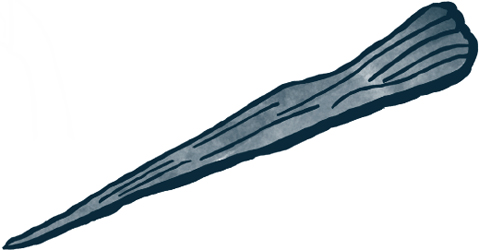
MISS FISHER’S MURDER MYSTERIES
1920s Melbourne + a badass lady detective who flouts convention + extended sexual tension = the magic that is Miss Fisher and her murder mysteries. The first episode features Miss Phryne Fisher tracking down the doctor behind an illegal abortion ring—and giving a pretty amazing speech about why abortion being illegal hurts everyone—all while wearing a seriously glamorous outfit. This is Netflix escapism I can really get behind.
